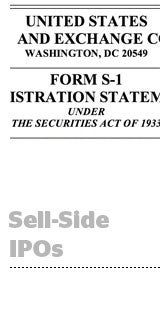 It’s a tumultuous time for the usually staid ad-tech subsector of sell-side platforms (SSPs).
It’s a tumultuous time for the usually staid ad-tech subsector of sell-side platforms (SSPs).
As The Wall Street Journal reported on Friday (registration required), PubMatic will chase direct competitor Rubicon Project into the public markets, seeking a valuation of more than $1 billion.
Additionally, PubMatic has replaced its top marketer, Larry Harris, with Razorfish and Microsoft alum Terri Walter. As CMO, Walter is charged with hammering home the company’s stories around private marketplaces and cross-platform real-time bidding (RTB).
Cross-platform is an area where PubMatic has a credible narrative. In a separate news release this morning, PubMatic trumpeted that it has picked up Advance Digital — owner of regional portals like NJ.com and NOLA.com — as a customer of its multidevice One Platform.
The larger challenge for the company may be around private marketplaces, also known as “programmatic direct” or “programmatic guaranteed” deals. According to some sources, PubMatic has made fewer inroads than Rubicon in this space, where publishers use programmatic tools to support direct, negotiated deals with agencies and advertisers.
That may be partly a function of Rubicon’s success in building ties with demand sources, including ad networks and agency trading desks.
“They’re going to have to find a way to differentiate with yield as well as consultative services,” said Steve Goldberg, senior adviser at media industry consultant Empirical Media. “What we’ve seen in our client base is that Rubicon is more aggressive in driving private marketplace revenue, and that is a differentiator of consequence.”
However Goldberg pointed out PubMatic has sought competitive strength in a very different area: consulting. “PubMatic is making an attempt to differentiate themselves via their consultative services for publishers. That’s been their major move,” he said. “The question I have is: Is that a differentiator of consequence to the publisher?”
These questions will start to find answers when (and if) PubMatic files its S-1 registration statement with the US Securities and Exchange Commission, expected “later this year,” per the WSJ report. When Rubicon did so last week, the ad sector learned that the company’s total “managed revenue” was $326.7 million for the first nine months of 2013, a 44% growth rate over the previous year.
Meanwhile, net revenue as a percentage of managed revenue was 17%, up from 16% in the same period in 2012. In other words, as Goldberg puts it, Rubicon has shown it can achieve faster than marketplace growth without damaging its margin structure.
“What PubMatic will need to show in order to have as good a reception is a similar size of growth in managed revenue with no erosion of their margin structure,” he added.











